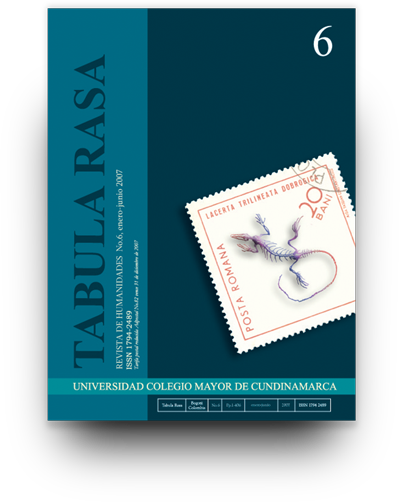Latinos (as) and the decolonization of the American empire in the 21st century
Latinos(as) y la descolonización del imperio estadounidense en el siglo XXI
Show authors biography
Despite appearances, the American empire is in rapid decline. There are many anti-capitalist, anti-imperialist and anti-patriarchal struggles within this empire, invisible to the peoples who live its dire consequences in Latin America, Africa, Asia and the Middle East. This article presents the dilemmas confronting the American empire regarding the growth of Latino populations and the struggles for decolonization from within. In a few decades, whites will be a demographic minority in the United States. Racial minorities will be the majorities; Latinos will be the majority of minorities. The empire is torn between new forms of apartheid (neo-apartheid) and the decolonization of white supremacy. Due to their strategic importance, the struggles that lie ahead will be sharp and definitive for the future of all humanity.
Article visits 80 | PDF visits 46
Downloads
Anzaldúa, Gloria. 1987. Borderlands/La Frontera: The New Mestiza. San Francisco: Spinsters/ Aunt Lute.
Balibar, Etienne. 1991. “Is there A Neo-Racism?” in Etienne Balibar and Immanuel Wallerstein (eds) Race, Nation, Class: Ambiguous Identities. Pp. 17-28. London: Verso.
Basch, Linda, Nina Glick Schiller and Cristina Szanton-Blanc. 1993. Nations Unbound: Transnational Projects, Postcolonial Predicaments and Deterritorializaed Nation-States. Amsterdam: Gordon and Breach Publishers.
Dussel, Enrique. 2002. Hacia una filosofía política crítica. Bilbao: Editorial Desclé de Brouwer.
Essed, Philomena. 1996. Diversity: Gender, Color and Culture. Amherst: University of Massachusetts Press.
Gilroy, Paul. 1993. Small Acts. London: Serpent’s Tail.
Glazer, Nathan and Daniel P. Moyniham 1963. Beyond the Melting Pot: The Negroes, Puerto Ricans, Jews,Italians, and Irish of New York City. Cambridge: The M.I.T. Press.
Grosfoguel, Ramon. 2004. “The Implications of Subaltern Epistemologies for Global Capitalism: Transmodernity, Border Thinking and Global Coloniality”. In Critical Globalization Studies, edited by William I. Robinson and Paul Applebaum. London: Routledge.
Grosfoguel, Ramon. 2003. Colonial Subjects: Puerto Ricans in a Global Perspective. Berkeley: University of California Press.
Grosfoguel, Ramon. 2002. «Colonialidad global y terrorismo anti-terrorista» Nueva Sociedad. 177:132-137
Huntington, Samuel P. 2004a “The Hispanic Challenge”. In Foreign Policy (MarchApril): 30-45.
Huntington, Samuel P. 2004b. Who Are We?: The Challenges to America’s National Identity. New York: Simon and Schuster.
Huntington, Samuel P. 1996. The Clash of Civilizations and the Remaking of World Order. New York: Touchstone.
Maldonado-Torres, Nelson. 2004. “The Topology of Being and the Geopolitics of Knowledge: Modernity, Empire, Coloniality”. City 8 (1):29-56.
Mignolo, Walter. 2000. Local Histories/Global Designs: Essays on the Coloniality of Power, Subaltern Knowledges and Border Thinking. Princeton: Princeton University Press.
Mignolo, Walter. 1995. The Darker Side of the Renaissance: Literacy, Territoriality and Colonization. Ann Arbor: The University of Michigan Press.
Portes, Alejandro. 1996. “Transnational Communities: Their Emergence and Significance in the Contemporary World-System.” In Latin America in the World-Economy. Pp. 151-168. Westport, CT: Greenwood Press,
Quijano, Aníbal. 2000. “Coloniality of Power, Ethnocentrism, and Latin America,” Nepantla Vol. 1, No. 3: 533-580.
Quijano, Aníbal. 1998. «La colonialidad del poder y la experiencia cultural latinoamericana» en Roberto Briceño-León and Heinz R. Sonntag, eds., Pueblo, época y desarrollo: la sociología de América Latina. Pp. 139-155. Caracas: Nueva Sociedad.
Quijano, Aníbal. 1993. «“Raza”, “Etnia” y “Nación” en Mariátegui: Cuestiones Abiertas» en Roland Forgues, ed., José Carlos Mariátgui y Europa: El Otro Aspecto del Descubrimiento. Pp. 167-187. Lima: Empresa Editora Amauta S.A.
Quijano, Aníbal and Wallerstein, Immanuel. 1992. “Americanity as a Concept, or the Americas in the Modern World-System. International Journal of Social Sciences 134: 583-591.
Said, Edward. 1979. Orientalism. New York: Vintage Books.
Saldívar, José David. 1997. Border Matters. Berkeley: University of California Press.
Saldívar, José David. 1991. Dialectics of Our America. Durham: Duke University Press.
Wallerstein, Immanuel. 2003. The Decline of American Power. New York: The New Press.
Wallerstein, Immanuel. 1998. Utopistics: Or Historical Choices of the Twenty-first Century.
New York: The New Press.
Wallerstein, Immanuel. 1995. After Liberalism. New York: The New Press.
Wallerstein, Immanuel. 1991. Unthinking Social Science. London: Polity Press.
Wallerstein, Immanuel. 1984. The Politics of the World-Economy. Cambridge: Cambridge University Press and Editions de la Maison des Sciences de l’Homme.
Wallerstein, Immanuel. 1979. The Capitalist World-Economy. Cambridge: Cambridge University Press and Editions de la Maison des Sciences de l’Homme.
Wallerstein, Immanuel. 1974. The Modern World-System. New York: Academic Press.




